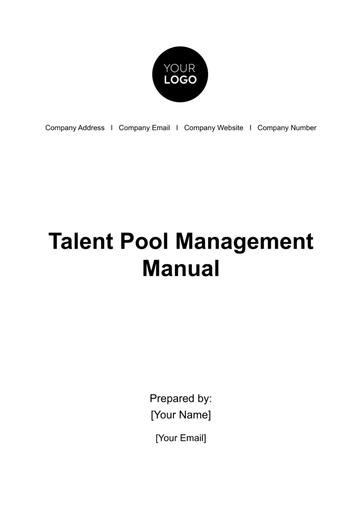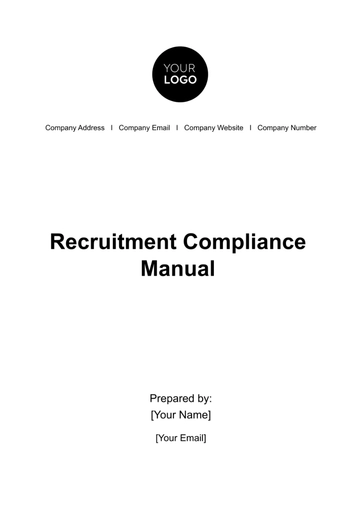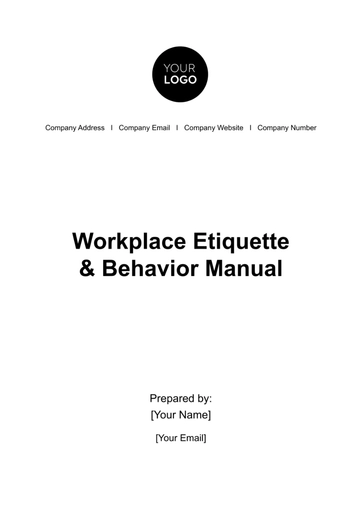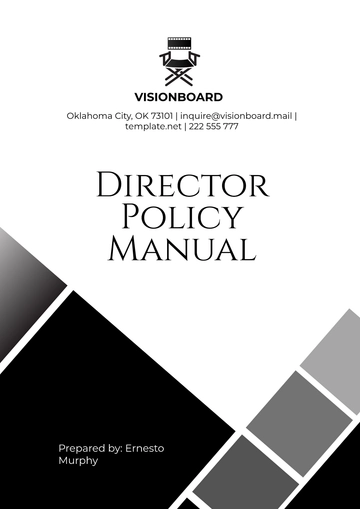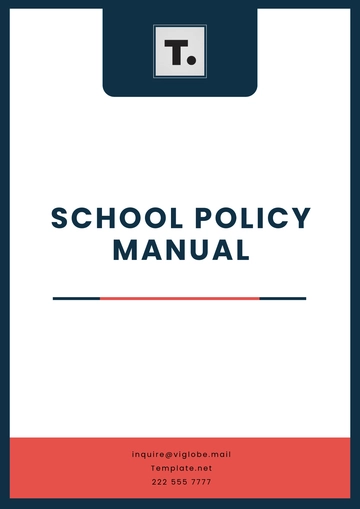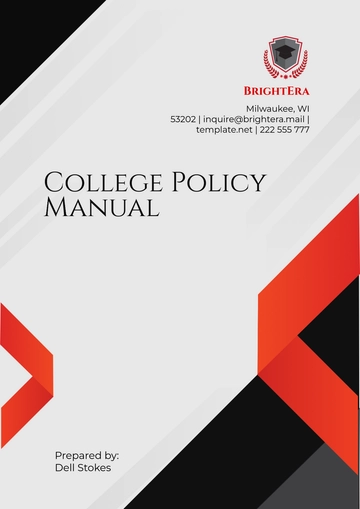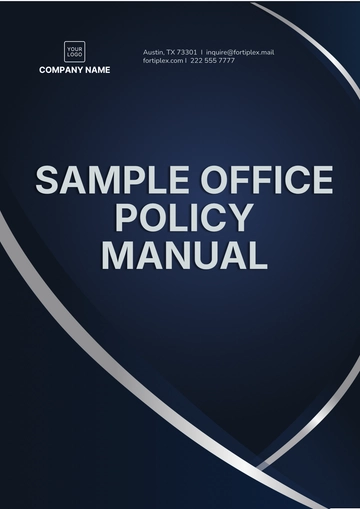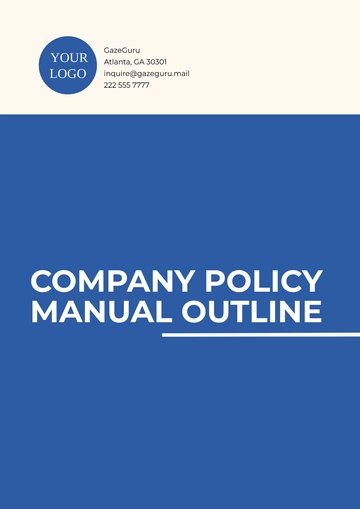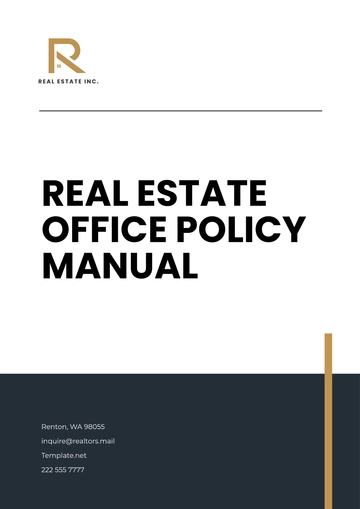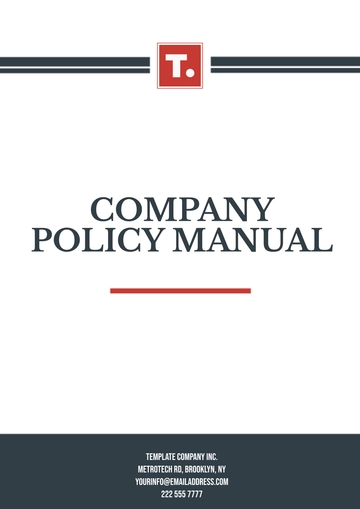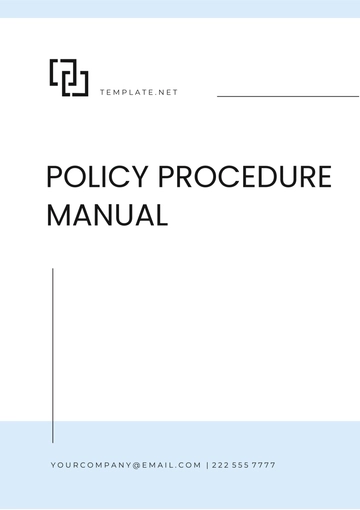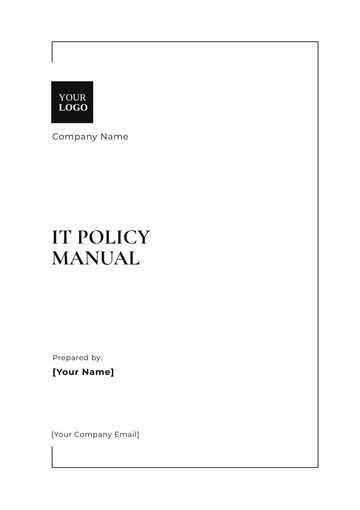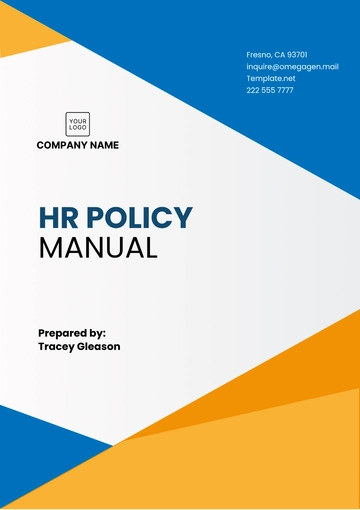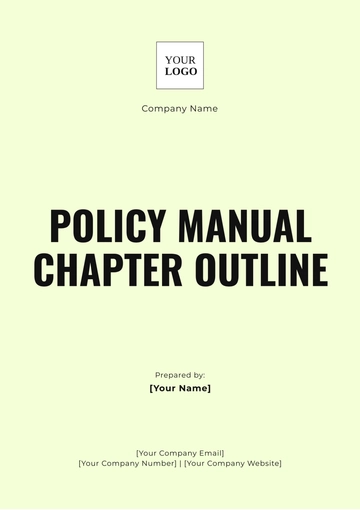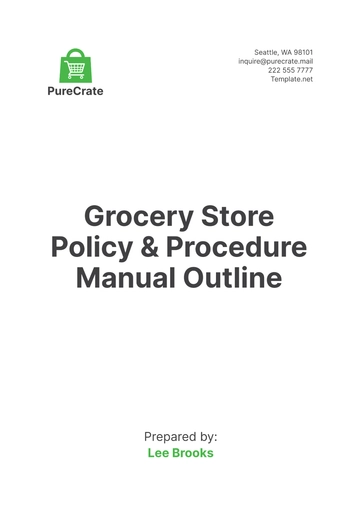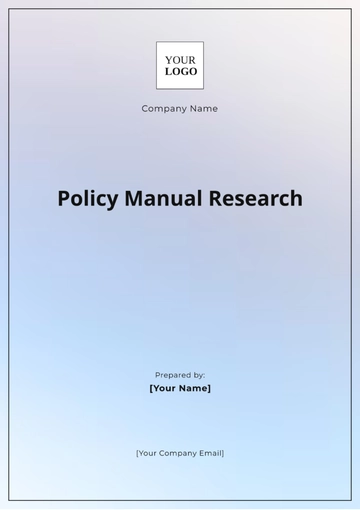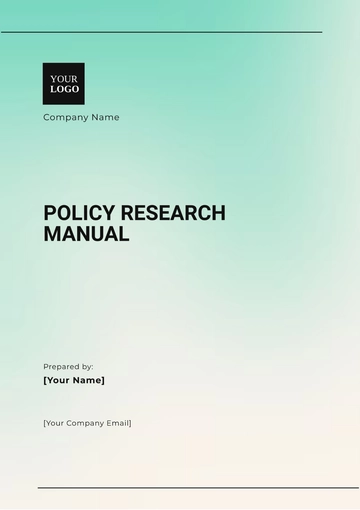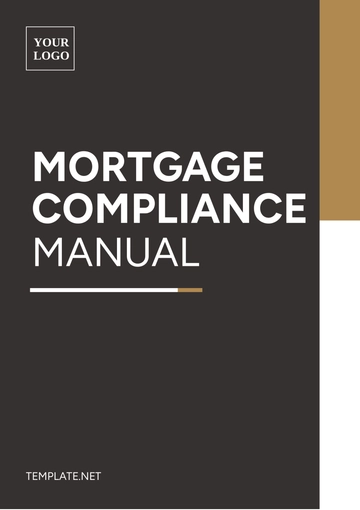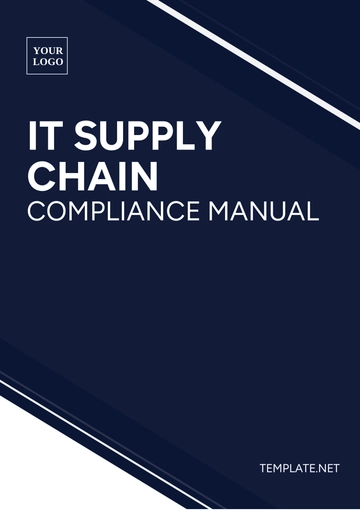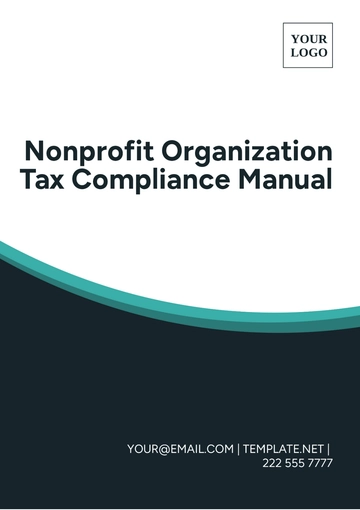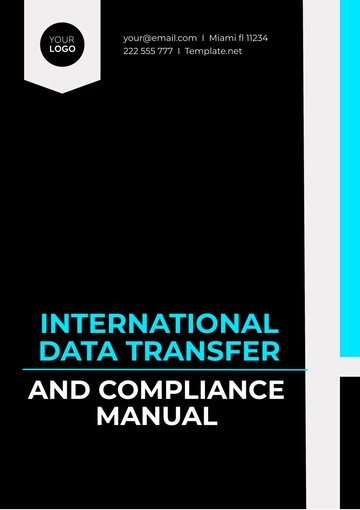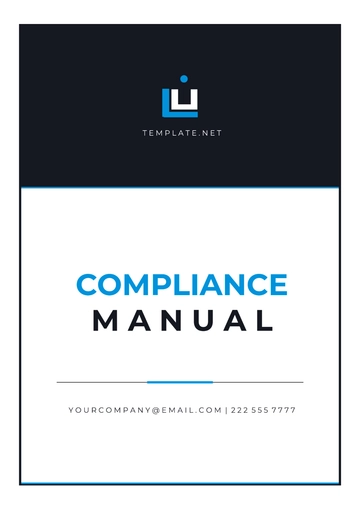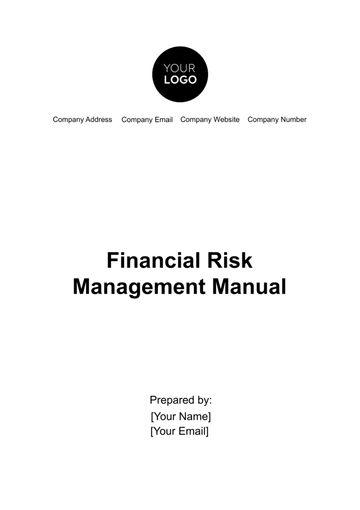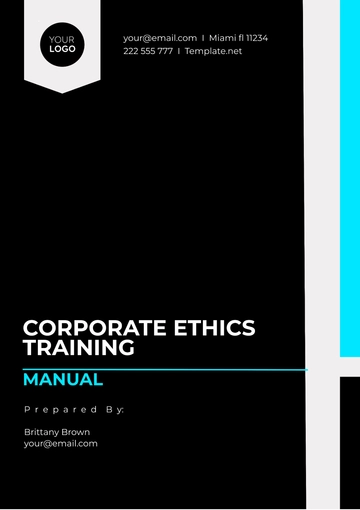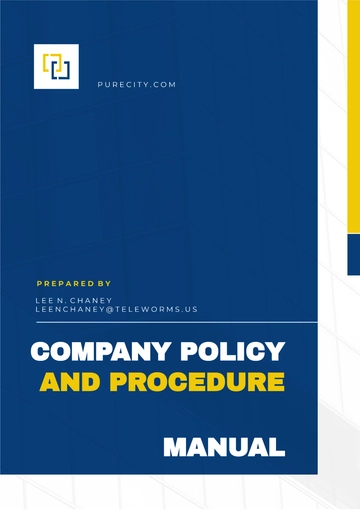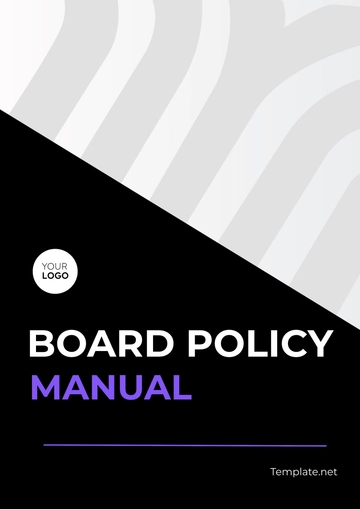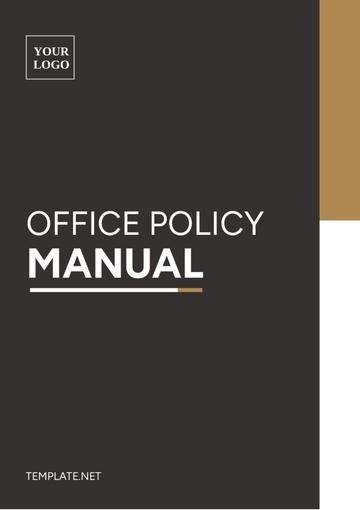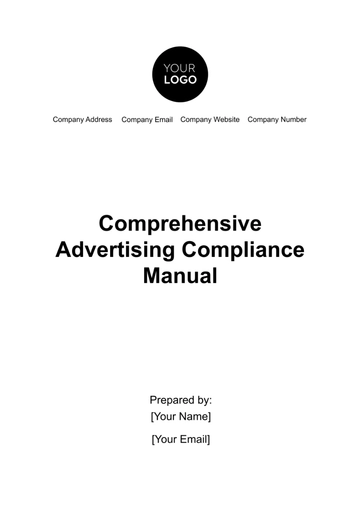Free Legal Corporate Policy and Procedure Manual
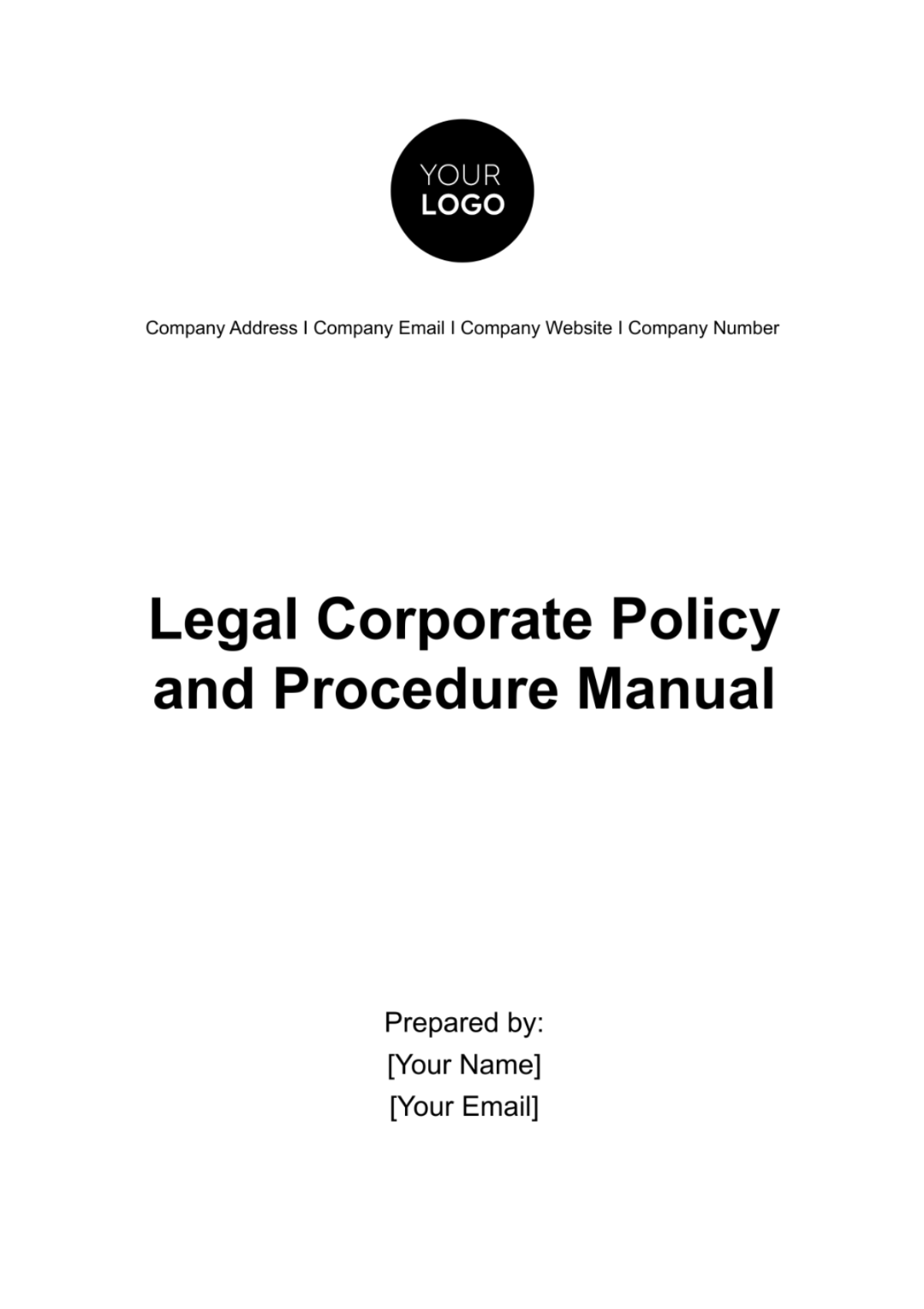
I. Introduction
The company is committed to operating at the highest level of ethical, professional, and legal standards. This manual sets out our expectations of stakeholders in achieving these standards. It serves as a guide to ensure that all actions and decisions align with our core values and legal obligations. It is designed to provide clarity on our policies and procedures, promoting a culture of transparency and accountability.
A. Overview
This manual provides a comprehensive overview of our corporate legal policies and procedures. It outlines the standards we expect all stakeholders to adhere to and the procedures we have in place to ensure these standards are met. This manual is a testament to our commitment to uphold the highest ethical and legal standards in all our operations. It serves as a roadmap for our stakeholders, guiding them in their interactions and dealings with the company.
In addition, the manual is a reflection of our company’s values and principles. It is a tool that helps us maintain our integrity and reputation in the industry. By adhering to the guidelines outlined in this manual, we can ensure that our operations are not only legally compliant but also ethically sound.
B. Scope
The policies and procedures outlined in this manual apply to all stakeholders, including employees, contractors, and partners. It covers all aspects of our operations, from employment practices to data handling. The scope of this manual is broad and comprehensive, reflecting the wide range of activities and interactions that occur within our company.
The manual is not limited to just our internal operations. It also extends to our interactions with external parties such as clients, suppliers, and regulatory bodies. By setting clear expectations for behavior and conduct, the manual helps ensure that our high standards are maintained in all our dealings, both internal and external.
C. Target Audience
The primary audience for this manual is:
Employees: All employees, regardless of their role or level within the company, are expected to understand and adhere to the policies and procedures outlined in this manual.
Contractors: Contractors engaged by the company are also expected to comply with our policies and procedures. This ensures consistency and maintains our high standards across all work performed for the company.
Partners: Our partners, including suppliers and joint venture partners, are also part of the target audience for this manual. We expect our partners to uphold the same ethical and legal standards as we do.
Regulatory Bodies: The manual also serves as a reference for regulatory bodies. It demonstrates our commitment to compliance and provides transparency into our operations.
Clients: While not directly subject to our internal policies and procedures, clients can refer to the manual to understand our company’s commitment to ethical and legal practices.
II. Corporate Legal Policies
Our corporate legal policies are designed to guide our stakeholders in their interactions with the company and each other. They reflect our commitment to ethical, professional, and legal standards. Each policy is comprehensive, providing clear guidelines on expected behavior and actions.
A. Anti-Corruption Policy
Our Anti-Corruption Policy reflects our zero-tolerance approach towards corruption. We are committed to conducting our business in an honest and ethical manner. This policy applies to all stakeholders, including employees, contractors, and partners.
Prohibition of Bribery: Any form of bribery, including kickbacks, illegal gifts or other corrupt practices, is strictly prohibited. This includes offering, promising, giving, accepting or seeking a bribe in any form. This prohibition extends to all business dealings and transactions in all countries where we operate. It is not acceptable to offer, promise, give, demand or accept any bribe, whether cash or other inducement to or from any person or company.
Compliance with Laws: All stakeholders must comply with all applicable anti-corruption laws and regulations in the countries where we operate. This includes local laws as well as international laws and regulations such as the U.S. Foreign Corrupt Practices Act (FCPA) and the UK Bribery Act. We are committed to understanding these laws and operating within their guidelines.
Reporting Violations: Any suspected violations of this policy must be reported immediately through our reporting channels. We encourage openness and will support anyone who raises genuine concerns in good faith
if they suspect that this policy has been violated. We will ensure that any reports are treated confidentially and investigated promptly and thoroughly.
B. Anti-Discrimination Policy
Our Anti-Discrimination Policy affirms our commitment to creating an inclusive environment where everyone is treated with respect and dignity. Discrimination in the workplace, whether based on race, sex, religion, disability, or other protected categories, is strictly prohibited.
Equal Opportunities: We are committed to providing equal opportunities in all aspects of employment, including recruitment, hiring, promotion, training, compensation, benefits, and termination. We believe that everyone should have the opportunity to succeed and contribute to our company’s success, regardless of their background or personal characteristics.
Harassment-Free Workplace: We strive to maintain a workplace free from harassment, including verbal, physical, and sexual harassment. We believe that everyone has the right to work in a positive and respectful environment. Any form of harassment is unacceptable and will be dealt with seriously.
Reporting Discrimination: Any incidents of discrimination or harassment should be reported immediately. We will investigate all complaints thoroughly and promptly. We are committed to ensuring that anyone who makes a complaint will not be victimized or treated unfairly as a result.
C. Confidential Information Policy
Our Confidential Information Policy outlines the responsibilities of all stakeholders in handling proprietary information. It is crucial for maintaining our competitive advantage and complying with legal requirements.
Protection of Information: All persons handling proprietary information are expected to ensure its security. This includes safeguarding physical and electronic data and not disclosing information without proper authorization. We expect all stakeholders to take appropriate measures to prevent unauthorized access, disclosure, modification, or destruction of proprietary information.
Non-Disclosure Agreements: Stakeholders may be required to sign a Non-Disclosure Agreement (NDA) to protect confidential information. The NDA outlines the responsibilities of the parties involved in handling confidential information and the consequences of breaching the agreement.
Reporting Breaches: Any breaches of confidentiality must be reported immediately. We will take appropriate action to address any breaches and prevent future occurrences. We are committed to maintaining the trust and confidence of our stakeholders by protecting the confidentiality of our information.
III. Company Procedures
Our company procedures are designed to operationalize our corporate legal policies. The following table outlines our key company procedures, their descriptions, and the parties responsible for them. These procedures are designed to ensure the effective implementation of our corporate legal policies:
Procedure | Description | Responsible Party |
|---|---|---|
Employment Agreement Execution | All employees must have a signed agreement outlining terms and conditions. | HR |
Mandated Reporting | Any legal, ethical or compliance violations must be reported. | All Employees |
Legal Audit | Periodic legal audit to ensure all policies are being followed. | Legal Department |
Policy Review | Annual review of all policies to ensure they reflect industry standards. | Policy Team |
Training | Adherence to corporate policies and procedures will be reinforced through regular training sessions. | HR & Management |
These procedures provide a clear framework for how we operate and what we expect from our stakeholders. By adhering to these procedures, we can ensure that our operations are transparent, accountable, and in line with our core values.
A. Employment Agreement Execution
Understanding Employment Terms: This procedure ensures that all employees understand their rights, responsibilities, and the terms of their employment. It is crucial for setting clear expectations right from the start of an employee’s journey with the company.
Preventing Misunderstandings: It helps to prevent misunderstandings and disputes. By having a signed agreement, both the employee and the company have a reference that clearly outlines the terms and conditions of employment.
Role of HR: The HR department is responsible for ensuring that all employees have a signed agreement before they start work. They are the custodians of these agreements and ensure that they are properly executed and stored.
B. Mandated Reporting
Promoting Accountability: This procedure encourages a culture of honesty and accountability. It is a key part of our commitment to ethical conduct and compliance.
Identifying Violations: It ensures that any violations of our policies or the law are quickly identified and addressed. This allows us to maintain our high standards of conduct and take corrective action when necessary.
Responsibility of All Employees: All employees are responsible for reporting any legal, ethical, or compliance violations they become aware of. This collective responsibility helps ensure that our company operates with integrity at all times.
C. Legal Audit
Ensuring Compliance: This procedure helps us to identify any areas where we may not be meeting our legal obligations. Regular audits allow us to proactively manage our compliance risks.
Continuous Improvement: It allows us to take corrective action and continuously improve our practices. By identifying and addressing issues early, we can enhance our operations and maintain our reputation for excellence.
Role of Legal Department: The Legal Department conducts periodic audits to ensure that all policies are being followed. They play a critical role in our compliance efforts, providing the expertise and oversight needed to ensure that we meet our legal obligations.
D. Policy Review
Continuous Improvement: This procedure ensures that our policies stay relevant and effective. It allows us to adapt to changes in the law, industry standards, or our own operations. By regularly reviewing our policies, we can identify areas for improvement and make necessary adjustments.
Role of the Policy Team: The Policy Team conducts an annual review of all policies to ensure they reflect current industry standards. They are responsible for gathering feedback, analyzing current policies, and making recommendations for changes.
Communication of Changes: Any changes to the policies as a result of the review will be communicated to all stakeholders. This ensures everyone is aware of the updated policies and can adhere to them.
E. Training
Promoting Understanding: This procedure ensures that all stakeholders understand our policies and procedures. It helps to promote a culture of compliance and ethical behavior. Regular training sessions help reinforce the importance of adhering to our corporate policies and procedures.
Role of HR and Management: The HR and Management teams are responsible for conducting regular training sessions. These sessions are designed to be interactive and engaging, allowing employees to ask questions and clarify any doubts.
Updating Training Material: The training material is regularly updated to reflect any changes in the policies and procedures. This ensures that the training sessions are always up-to-date and relevant.
In summary, our company procedures operationalize our corporate legal policies, ensuring that they are effectively implemented in our day-to-day operations. By following these procedures, we can maintain our high ethical, professional, and legal standards, and ensure a positive and productive environment for all our stakeholders.
IV. Compliance Requirements
Any non-compliance with the identified policies and procedures may result in disciplinary actions and could lead legal consequences. Here, we outline the key compliance requirements of our company and the implications of non-compliance. The following table provides a clear and concise overview of these requirements:
Compliance Requirement | Implication | Disciplinary Actions |
|---|---|---|
Adherence to Anti-Corruption Policy | Non-compliance may lead to disciplinary actions and legal consequences. | This could range from a warning for minor infractions to termination of employment or contract for serious violations. Legal consequences could include fines and imprisonment. |
Adherence to Anti-Discrimination Policy | Non-compliance may lead to disciplinary actions and legal consequences. | Disciplinary actions could include sensitivity training, written warnings, suspension, or even termination for repeated or severe violations. Legal consequences could include lawsuits and fines. |
Protection of Confidential Information | Non-compliance may lead to disciplinary actions and legal consequences. | Disciplinary actions could include a warning, suspension, termination, or legal action for serious breaches. Legal consequences could include civil or criminal charges. |
Employment Agreement Execution | Non-compliance may lead to disciplinary actions and legal consequences. | Failure to execute an employment agreement could lead to termination of employment. Legal consequences could include legal proceedings for breach of contract. |
Mandated Reporting | Non-compliance may lead to disciplinary actions and legal consequences. | Failure to report known violations could result in disciplinary actions such as warnings, suspension, or termination. Legal consequences could include fines and imprisonment. |
Legal Audit Compliance | Non-compliance may lead to disciplinary actions and legal consequences. | Non-compliance with legal audits could result in disciplinary actions such as warnings, suspension, or termination. Legal consequences could include fines and legal proceedings. |
Policy Review | Non-compliance may lead to disciplinary actions and legal consequences. | Failure to comply with policy reviews could result in disciplinary actions such as warnings, suspension, or termination. Legal consequences could include fines and legal proceedings. |
Compliance with these requirements is crucial for maintaining our high ethical, professional, and legal standards. It shows that we value integrity, fairness, and respect in all our dealings. This not only enhances our reputation but also builds trust and confidence among our stakeholders, including employees, customers, partners, and regulators.
Moreover, these compliance requirements play a crucial role in risk management. Non-compliance can lead to serious consequences, including disciplinary actions, legal penalties, and damage to our reputation. By adhering to these requirements, we can proactively identify and manage risks, prevent violations, and ensure that our operations are in line with our legal obligations and industry standards. This contributes to the sustainability and success of our business in the long run. Therefore, it is in the best interest of all stakeholders to understand and adhere to these compliance requirements.
V. Policy and Procedure Administration
The administration of our policies and procedures is a critical aspect of our corporate governance. It ensures that our policies are not just well-documented but also effectively communicated, understood, and adhered to by all stakeholders. The key aspects of our policy and procedure administration.
A. Review and Update
Policies and procedures should be reviewed and updated at regular intervals. This is to ensure that they remain relevant and effective in the face of changing business environments, regulatory landscapes, and company objectives. The review process should involve key stakeholders and consider feedback from employees and other relevant parties. Any updates should be clearly communicated to all stakeholders in a timely manner.
B. Acknowledgment Form
All employees must sign an acknowledgment form after reviewing their company policies and procedures. This serves as a record of their understanding and commitment to adhere to these policies and procedures. The acknowledgment form should be updated whenever there are significant changes to the policies and procedures.
C. Accessibility
Legal corporate policies and procedures must be made easily accessible to all employees. This could be through the company intranet, employee handbooks, or other appropriate channels. Ensuring easy access to these documents helps promote awareness and compliance among all employees.
D. Reporting Violations
All employees should feel comfortable reporting violations without fear of retribution. A clear and confidential reporting mechanism should be in place to encourage employees to report any suspected violations. Reports should be taken seriously, and appropriate actions should be taken to investigate and address any violations.
- 100% Customizable, free editor
- Access 1 Million+ Templates, photo’s & graphics
- Download or share as a template
- Click and replace photos, graphics, text, backgrounds
- Resize, crop, AI write & more
- Access advanced editor
Streamline policy and procedure documentation with the Legal Corporate Policy and Procedure Manual Template available only here on Template.net! This editable and customizable manual is now even better through the AI Editor Tool. Trust in the capabilities of our platform to provide a professional and user-friendly resource for your needs!
